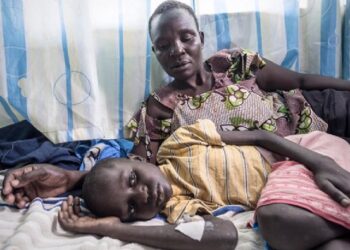The director general of the World Health Organisation (WHO), Tedros Adhanom Ghebreyesus has hailed Uganda for her role in controlling the spread of the ebola virus from the neighboring Congo. The virus has ravaged parts of the DR Congo, which shares borders with numerous towns in Uganda.
Ghebreyesus made the commendation yesterday after a meeting with a delegation of government officials, led by the Prime Minister, Dr Ruhakana Rugunda.
“I want to commend Uganda for the high level of preparedness, which has kept the Ebola virus away,” he said, crediting Uganda for a strong disease surveillance system and support to WHO.
Ghebreyesus said the virus was now under control in various areas, including North Kivu, but warned that the risk of spreading to other regions including Uganda remains. He noted that controlling the epidemic will only be possible through collaboration since it was now being addressed as a regional concern. Ebola has claimed over 350 lives in the DR Congo since it broke out last year, exacerbating unrest brought about by long-running political conflict.
Fight against ebola
Uganda intensified Ebola screenings at its border points with the DRC as more Congolese refugees continue to flock to Uganda to fleeing polls related violence. Joint health surveillance teams stepped up mandatory screening at Uganda’s border points in Bunagana in Kisoro district and Mpondwe in Kasese district.
The intense screening programme comes hardly a week after the WHO warned that growing unrest in eastern Congo was disrupting efforts to rein in on an Ebola outbreak. Among the most hit areas include Beni and Butembo.
There are fears of its spread to Goma and Kisangani and neighbors, including Uganda. Last week, at least 20 people, suspected of having contracted Ebola fled a transit center in Beni region, raising fears about potential spread of the virus.
However, in spite of the latest threat, Uganda has recorded no cases of the disease. Rugunda thanked WHO for supporting Uganda and lauded Ugandan medics for their efforts in keeping the epidemic away.
“We are confident that we can overcome this problem, but we need to harmonize our response,” Rugunda said.
Ministers Sam Kutesa (foreign affairs) and Bright Rwamirama (defence and veteran affairs) were also in attendance.
Strategy
Over the years, Uganda has built extensive expertise in surveillance and management of the deadly viral infections and routinely sends experts to countries that come under attack.
How ebola spreads
The ebola virus is transmitted through blood, secretions, organs or other bodily fluids of infected animals such as chimpanzees, gorillas, fruit bats, monkeys, forest antelope and porcupines. A person suffering from ebola can infect other people through physical contact with body fluids such as saliva, blood, stool, vomit, urine and sweat from an infected person and soiled clothing.
Symptoms
Persons infected with the ebola virus present with a sudden onset of fever, fatigue, muscle pain, headache, sore throat, vomiting and diarrhoea. Contact with fruit bats or monkeys or apes and the consumption of their meat is discouraged, as well as direct or close contact with people with ebola symptoms.
Background
Uganda’s first and worst ebola epidemic was in 2000 during which it claimed 224 people in Gulu, Masindi and Mbarara districts. The next outbreak was in Bundibugyo district in 2007, where it claimed 37 people. Between June and August 2012, another Ebola epidemic in Kibaale district claimed 17 lives. Ugandan medics helped control the worst Ebola epidemic in history (2013-2016) which ravaged Guinea.






























































